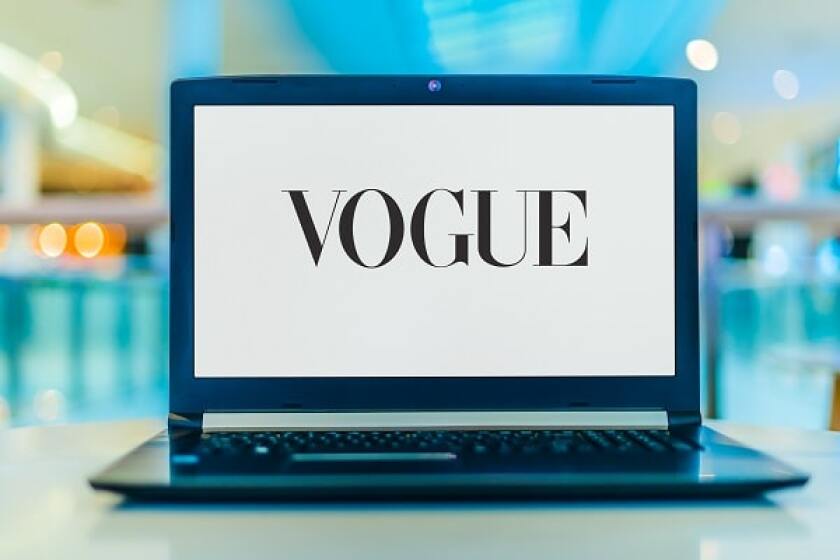I can just imagine the fear and worry at the UK headquarters of global fashion magazine Vogue when it learned about The Star Inn at Vogue, a rural pub in the Cornwall village of Vogue more than 200 miles from London.
Perhaps an eagle-eyed Vogue employee was enjoying some time off when they stumbled upon the pub. An emergency call to London HQ: “Boss, you’re not going to like this. There’s a pub here called The Star Inn at Vogue – we better nip this one in the bud before Kendall Jenner turns up here expecting her photoshoot.”
OK, it probably didn’t go quite like that, but the very notion that the world-famous fashion magazine should take issue with the name of a village pub is arguably just as absurd as that imagined scenario.
And yet, according to press reports in the last few days, that is exactly what has happened.
Related stories
Condé Nast, the US-based global media company that owns Vogue and has a trademark for the same name, wrote to the owners of The Star Inn at Vogue asking them to change the pub’s name due to fears over a possible link between the two businesses.
The publicans have taken the threat in their stride (they said they would not comply) and have seen the funny side. According to local press reports, they wrote in response: “I note that you have only been in existence since 1916 and I presume that at the time when you chose the name Vogue in the capitalised version you didn’t seek permission from the villagers of the real Vogue.”
Nevertheless, I can see where Condé Nast is coming from: a high-end fashion magazine which has featured interviews with Meghan Markle and Kamala Harris and a pub serving real ale and carvery meals are difficult to distinguish (although I know which appeals to me more).
The Star Inn at Vogue has reportedly been a local watering hole for hundreds of years, outdating even the magazine.
But this fact, not to mention the completely different business models of the two, appeared to be of little concern to Condé Nast.
Managing IP has approached the company for comment on its enforcement strategy and is awaiting a response.
However, Condé Nast has since said that “further research” indicated it “did not need to send the letter”.
You don’t say.
Jokes aside, the case does raise some interesting questions from an in-house enforcement perspective.
Outsourcing dangers
First, it is possible that this work was outsourced. Condé Nast said a change in the pub’s status on Companies House – the UK’s online register of companies – is what prompted the letter.
Trademark watching and automatic scans for potential infringements is an area of work that numerous in-house counsel have told us they use external companies for.
But if picking out suspected infringers is an automated process, I would be interested to know who (if anyone) has control over what letters are sent and to whom.
The letter to the pub was from Condé Nast’s chief operating officer, not someone within the legal team.
I’d be astonished if any lawyer with intellectual property knowledge formally signed off on that letter being sent – especially when you consider that the use of ‘Vogue’ stems from the physical location of the pub rather than the dress sense of its locals.
Further, the wording in the letter is sufficiently vague that it could have applied to almost any business – suggesting the company uses a blanket template for these types of letters.
“We are concerned that the name which you are using is going to cause problems because as far as the general public is concerned, a connection between your business and ours is likely to be inferred,” the letter said.
There’s no issue with using a boilerplate format (this is common for contracts, where often just a few key words are changed). But why not at least have a human make sure that the target is genuinely doing something that could cause confusion before the letter is sent?
The risk of not doing this, as has become clear, is you end up looking very silly.
Human error?
A publication of Vogue’s fame and prestige would, even with the most basic marketing training, be all too aware of the negative press that could follow such an action and the potential for ‘David v Goliath’ headlines and social media storm.
But it seems not on this occasion. Which begs the serious question of how much oversight the legal team had here.
The second possibility is that this was a genuine human error. But even then, it would be very embarrassing for Vogue and an error it would be keen not to repeat.
By the way, if I’m wrong and you think Vogue did have a genuine claim but was cowed into submission by the media coverage, please do get in touch and let me know your thoughts. I struggle to see it, but I’d love to be corrected.
The third option (least likely but most funny) is that this was all a joint marketing scheme cooked up between the multi-billion dollar valued fashion brand and the pub to generate publicity for both parties.
The pub’s owners have, in one media interview, pledged to host a fashion show. Perhaps Kendall Jenner won’t be so out of place there after all…











